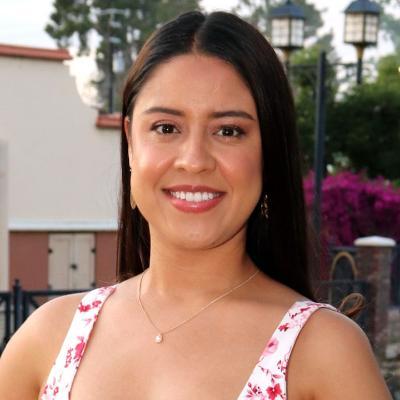
Dulce Diaz is the senior manager, College Success at The Wonderful Company.
Dulce currently serves as senior manager of College Success at The Wonderful Company, where she leads initiatives within the organization’s college scholarship program to support students from California’s Central Valley in accessing and navigating higher education. Her work is grounded in a deep commitment to equity for students from rural, under-resourced communities and focuses on equipping and supporting college success coaches who provide direct guidance to scholars. Through strategic leadership and collaboration, she helps develop systems that improve student persistence, increase graduation rates, and ensure every scholar has the resources and support needed to achieve their post-graduation goals.
As a first-generation college graduate, Dulce’s personal journey has deeply shaped her commitment to educational equity. She enrolled in LMU’s Ed.D. program for its focus on social justice and the flexibility it offered as a full-time professional. As a Gates Millennium Scholar, she was able to pursue her doctorate with full funding, an opportunity that made earning a doctoral degree possible. The program’s online format and equity-centered approach allowed her to grow as a leader while staying grounded in her work supporting students from California’s Central Valley.
Dulce’s dissertation, Access Does Not Equal Inclusion: Examining the First-Year College Experience of Rural Latinx Dual Enrollment Alumni at a Four-Year Postsecondary Institution, examines the first-year experiences of first-generation Latinx students from rural communities who are alumni of a dual enrollment (DE) program. Grounded in Yosso’s Community Cultural Wealth framework, it explores how cultural and social capital shape their transition into higher education and highlights the tension between access and inclusion. While DE programs can unlock meaningful opportunities, her research underscores that access alone does not ensure success. These findings offer critical insights for institutions and call for more intentional, equity-centered approaches to supporting first-generation students of color beyond the point of entry.
The Ed.D. program has helped strengthen Dulce’s leadership practice and deepened her understanding of student success. Through her research and coursework, she has gained new tools and insights that inform her work and allow her to better support students as they pursue their educational goals. She remains committed to advancing practices and policies that help students from rural communities thrive in higher education.